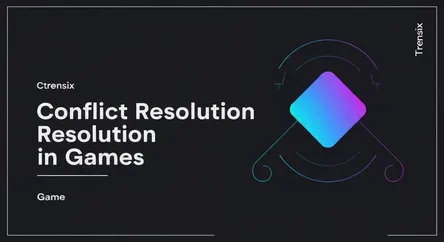Game
Conflict Resolution in Games

Discover how conflict resolution mechanics are evolving game narratives, moving beyond combat to offer players meaningful choices and diplomatic solutions.
What is it?
Conflict resolution in gaming refers to mechanics that allow players to solve disputes and overcome obstacles through non-violent means. Instead of defaulting to combat, these systems empower players with options like persuasion, intimidation, negotiation, bribery, or clever puzzle-solving. This can manifest as branching dialogue trees with skill checks, like in the Fallout series, or entire game designs built around avoiding direct confrontation, as seen in stealth or detective games. It's about providing alternatives to violence, making dialogue and social interaction as viable as wielding a sword.
Why is it trending?
Developers and players are increasingly seeking more narrative depth and emotional complexity. Conflict resolution mechanics allow for richer storytelling and character development, moving beyond the simple binary of winning or losing a fight. Games like Disco Elysium and Undertale have received critical acclaim for making conversation and empathy core mechanics. This trend reflects a desire for more mature themes and higher player agency, where the consequences of your words can be just as impactful as your actions, boosting replayability as players explore different outcomes.
How does it affect people?
These mechanics profoundly change the player experience by making choices feel more meaningful and consequential. It encourages critical thinking and empathy, forcing players to consider different perspectives and moral gray areas rather than just optimizing for combat. By offering diplomatic or clever solutions, games empower players to express their character's personality in more nuanced ways. This shift fosters a deeper connection to the game world and its inhabitants, transforming a simple power fantasy into a more thoughtful and engaging interactive narrative.